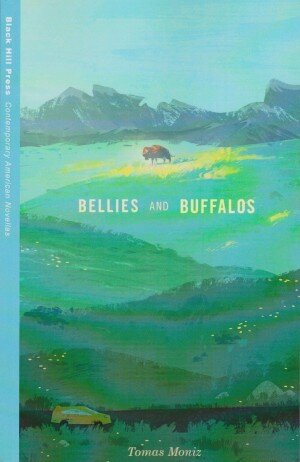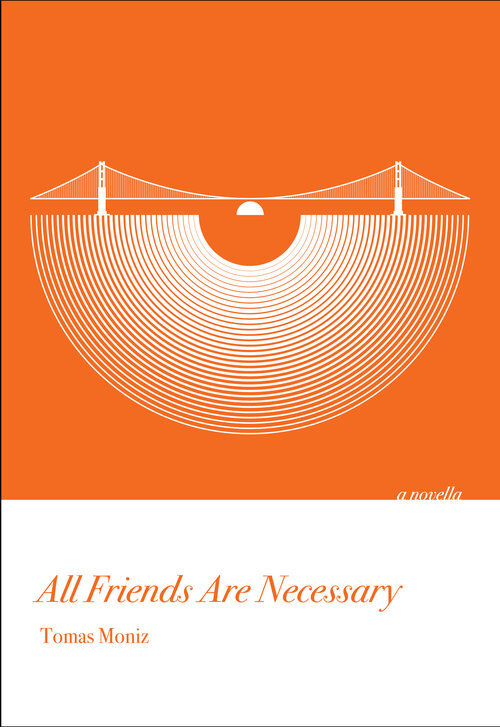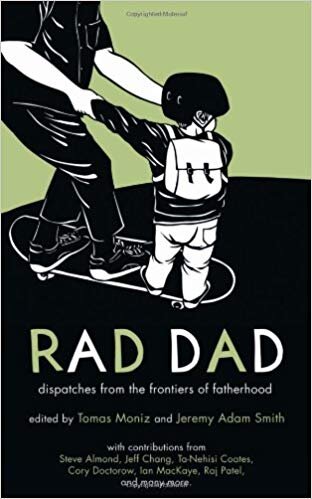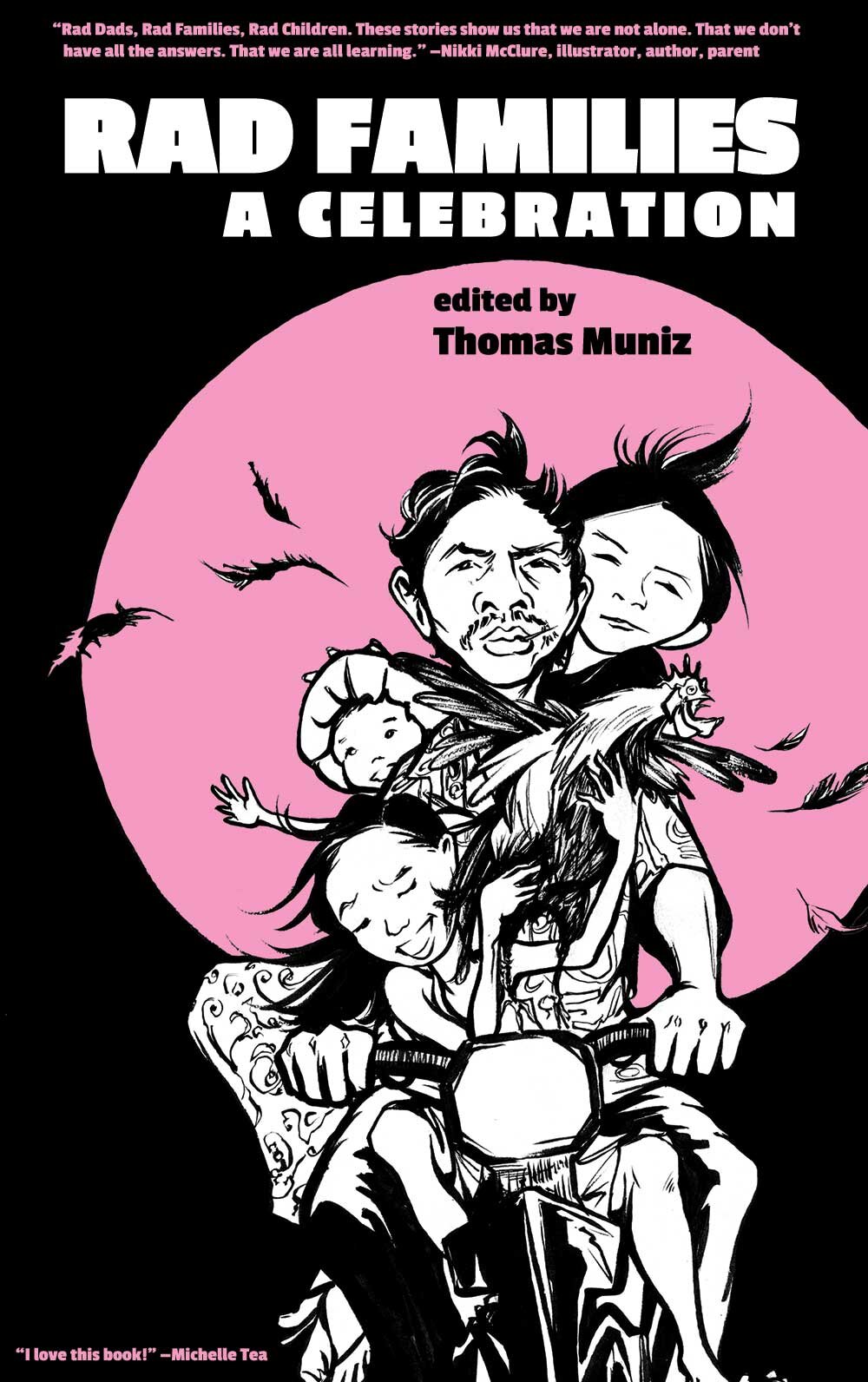by Amy Lutz, MCWC Operations Manager
MCWC 2020 faculty Tomas Moniz started out his writing career in the world of zine publishing, but is celebrating the publication of his debut novel this November. Big Familia released from Acre Books and received a starred Kirkus review that praised, “Diverse characters and a deeply likeable protagonist make this a standout debut.”
Tomas edited the volumes Rad Dad and Rad Families, as well as the children’s book Collaboration/Colaboración. He’s written two novellas, Bellies and Buffalos and All Friends Are Necessary, and is the recipient of the SF Literary Arts Foundation’s 2016 Award, the 2016 Can Serrat Residency, the 2017 Caldera Residency, and the 2018 SPACE on Ryder Farm residency.
Tomas attended MCWC as a participant in 2017 and we are thrilled he’s joining us again in 2020—this time, as the Emerging Writers’ Workshop instructor. Tomas shared with us about his variety of experiences in publishing, his advice for new writers, and what he plans to bring to MCWC 2020.
You attended MCWC as a participant in 2017. How did your conference experience impact your writing?
I did attend in 2017 and it impacted me in two ways. I took public transportation to Mendocino from Oakland and had a whole wonderful adventure (think bus rides and breakdowns and gas station pit stops and making friends and talking with strangers). The experience actually became a scene in my novella All Friends Are Necessary. Secondly, it’s always really wonderful to be in a community of writers, publishers, and editors. It reminds me that the struggle is real, but you’re not alone in it. It reminds me to be patient but persistent, and that Imposter Syndrome is an intense thing for so many of us as we emerge and claim our voices and stories. It’s been so helpful to listen to and commiserate with others who also experience those moments of doubt because when I’m back home, struggling with my writing routine, trying to do the work, the memories remind me to trust myself and that it’s all worth it.
You’ve been busy since MCWC 2017! This July you published a chapbook, All Friends Are Necessary, with Mason Jar Press and your debut novel, Big Familia, will release this month from Acre Books. Can you tell us about your new novel and a little about your writing process?
It’s been an exciting (and nerve-racking!) year for me in terms of publishing, but for years I focused on “publishing” things differently. For a long period of time, I would write and publish zines or chapbooks and do the work of distro-ing them and setting up reading tours and attending festivals, all of this outside of the mainstreaming publishing world. So I came to mainstream publishing a bit circuitously partly because mainstream publishing, as we all know, can be a bit of a who-do-you-know network as well as narratively limited (who gets published, which stories get support), but I’m here now doing my best.
This novel is a perfect example of blending the two publishing worlds together: it started out as a zine about Elliott Smith. I wrote it on a dare over the course of a few days, and immediately mailed it out to people. Then it became a collection of short stories because I liked the character I created. I wrote them mostly to read at literary events around the Bay Area, which I discovered is a powerful editing tool—hearing people’s reactions to the stories, writing with an ear to pace and rhythm. Finally, I decided to send it out as a manuscript to a few publishers. After a year of rejections, Hawthorne Books offered to publish it but asked me to add 20,000 words, which I begrudgingly did; I learned a lot working with their editor Rhonda Hughes. Sadly, they then ceased operations (another thing to discuss about publishing), but I finally found another home for Big Familia with Acre Books, who, of course, asked for an entirely new set of revisions.
You were the founder and editor of the zine Rad Dad, which has spurned two anthologies, Rad Dad and Rad Families. What inspired the project and how did it help launch your writing career?
Yes, I learned so much about writing and storytelling by editing and collecting essays all about radical parenting, about challenging patriarchy, about raising children and building community and creating our families. The two books evolved from the zine/self-publishing world as well. And then I reached out to a publisher I knew was also interested in alternative voices and radical politics: PM Press. I learned that sometimes success in publishing is about finding publishers who are looking for your kind of work. In the early 2000’s I put a call out in those early internet days for some submissions to capture stories that were outside of the mainstream narrative around fathering. I wanted different stories than the ones highlighted in magazines and parenting manuals: I wanted queer voices, trans voices, POC voices. Working with this project was less about launching my career, and more about recognizing how powerful it is to share our truths, to risk being vulnerable, and to connect with other people.
You’ll be teaching the Emerging Writers’ workshop at MCWC 2020. What advice do you have for writers who are starting out on their journey and on the fence about whether or not a writing conference is the next right step for them?
I’m super excited to teach the Emerging Writers’ workshop! My initial advice is that attending something like this is incredibly valuable, particularly because of the connections you can make. It’s certainly not the only way to begin creating a writing community but I have found conferences in particular super useful and, in some ways, more valuable than writing programs because what I’m looking for is camaraderie and colleagues rather than grades and degrees (not to mention the debt!). So come join us...my workshop will be playful and critical and supportive and generative and hopefully you can find something similar to what I found: inspiration!
In your bio, you often list a PO Box and say you love to receive letters, and that you promise to write back. Do you actually get much mail? Have any interesting or funny stories come out of that?
I’m always saddened when I finish reading something and am all worked up and want to send a thank you note or ask a question or send a love letter and there’s no information provided on how to do just that. PO Boxes rule! When I became a young father looking for advice around parenting, I happened upon Hip Mama by writer Ariel Gore and I wrote her a letter. She responded! It was one of the key moments of my writing career: feeling connected to other writers. I encourage everyone to provide a way to contact them. And getting letters is super fun. I’ve received so many letters from fathers looking to start their own magazines or columns looking for advice; from random people I don’t know sharing their reactions to zines I wrote ten years ago; from people who want to trade books with me. I have written a number of playful dirty poetry zines and sometimes I get the most awesome dirty stories written in response sent to me: no names, no return address, just someone sharing a sexy secret. I love those! But most powerful, when I hear from people who just want to say thank you for something I wrote because they felt connected or seen or validated. Those kinds of responses make all the work worthwhile. And yes, I write everyone back…
To find out more about Tomas Moniz, check out his website at www.tomasmoniz.com.
Applications for scholarships to MCWC 2020 will open January 1, and general registration will open March 1. Visit our website after January 1 for the full faculty line-up and event schedule. Till then, you can take a look at MCWC 2019 at mcwc.org. And be sure to sign up for our monthly newsletter below for more faculty interviews and announcements.







